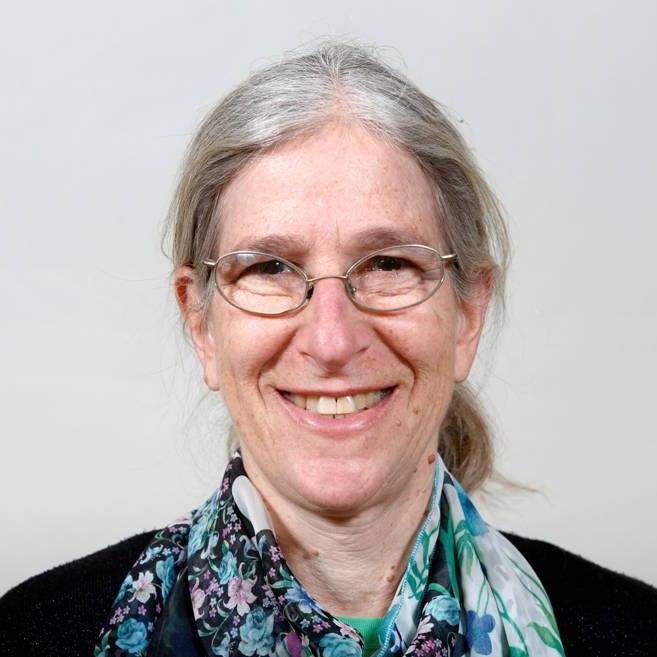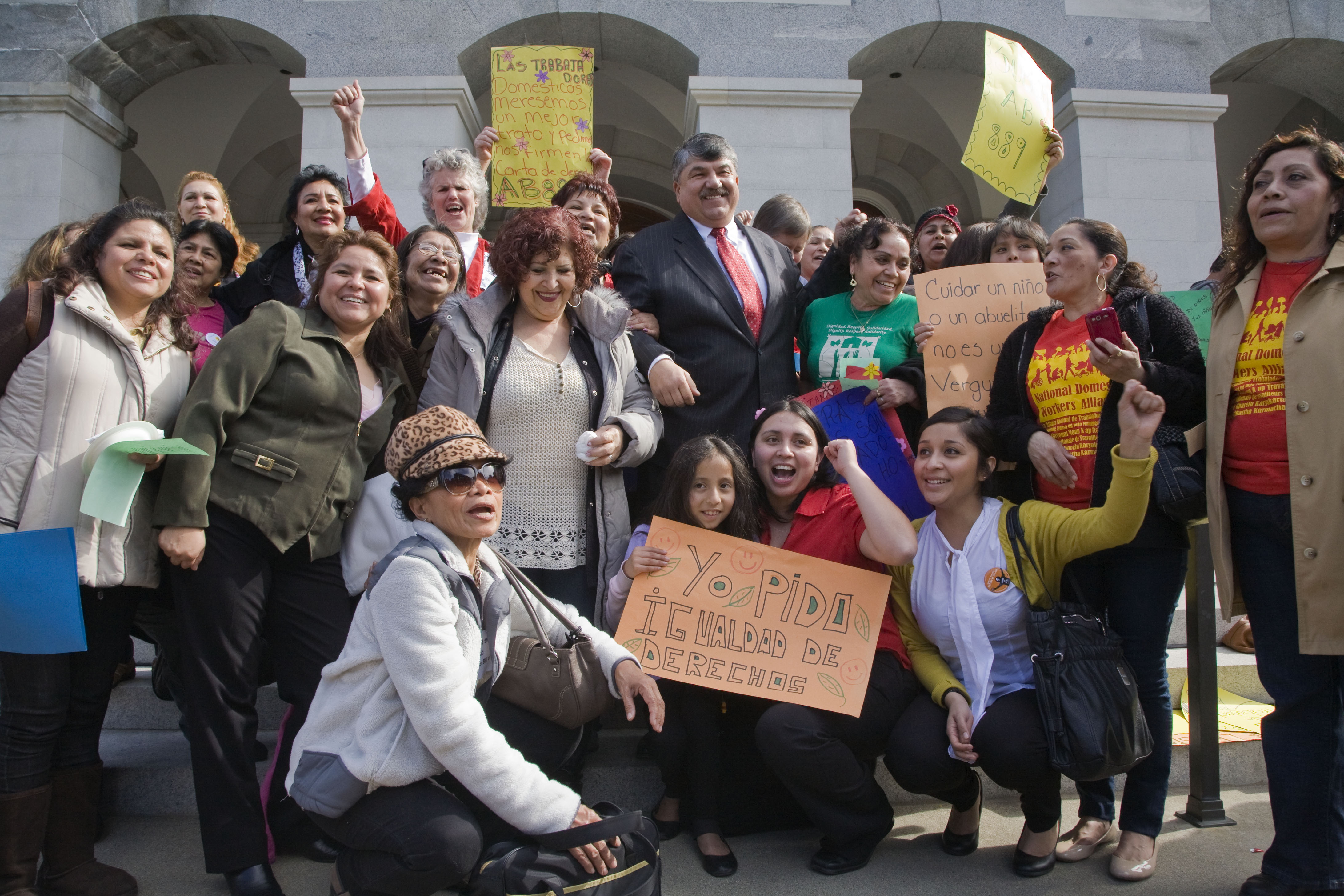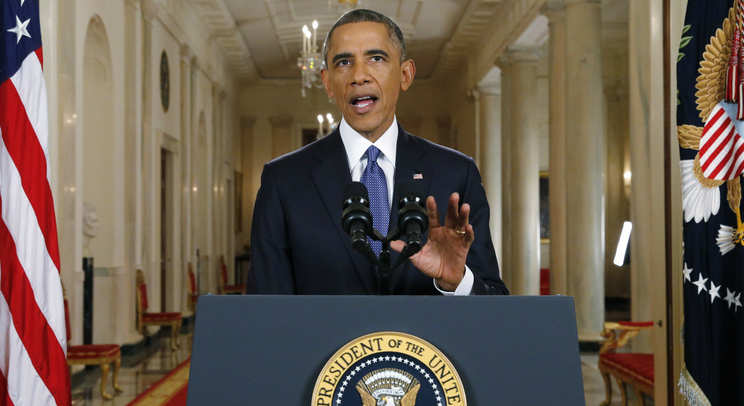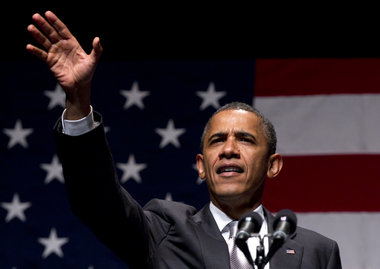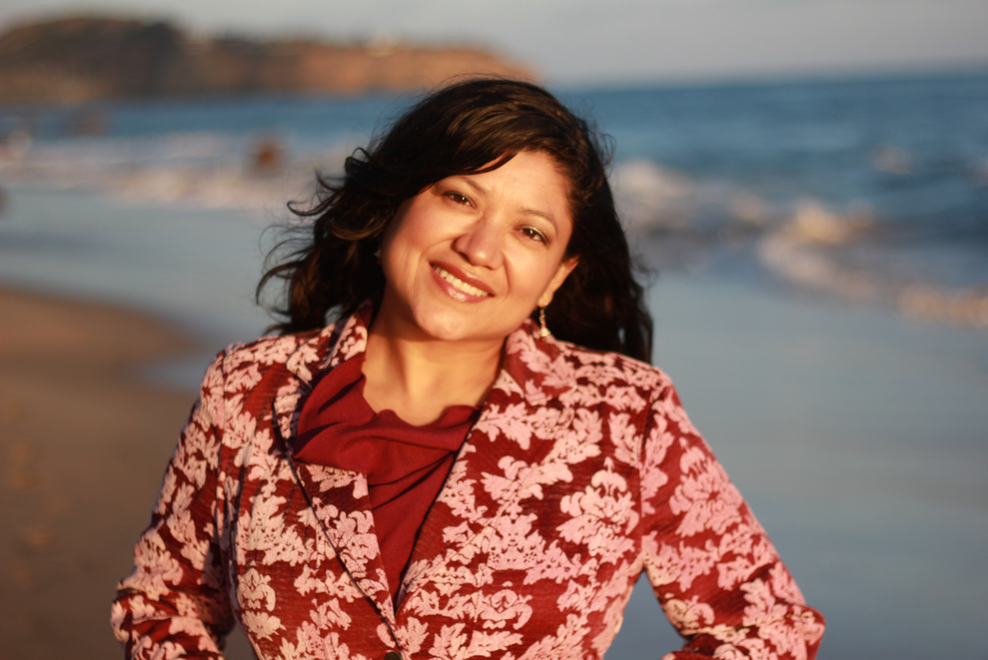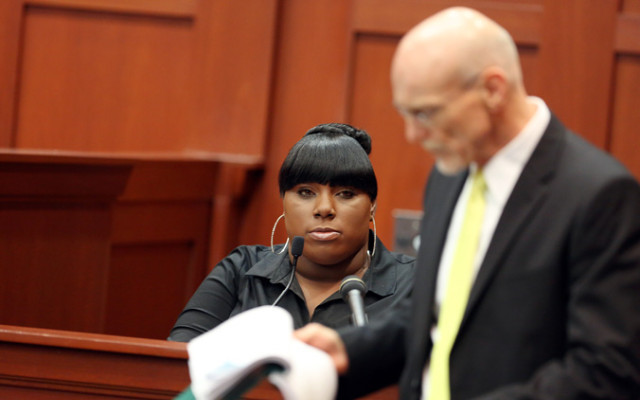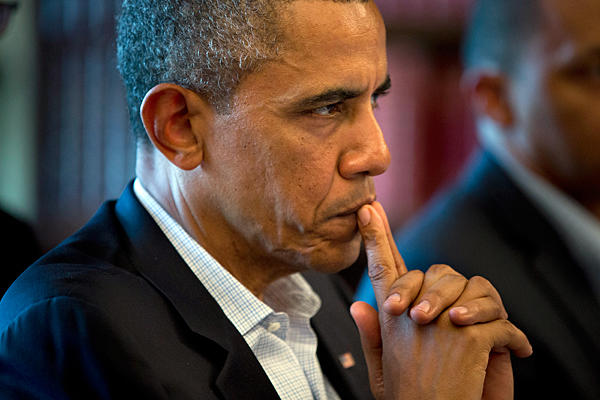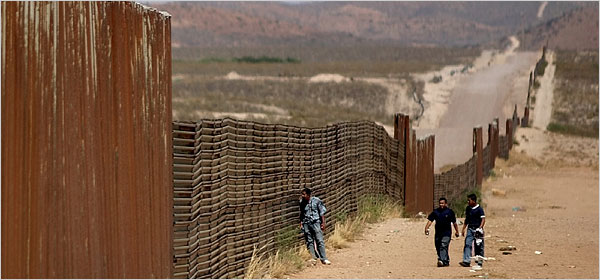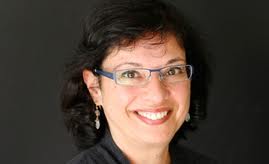We have a roundtable discussion and debate on immigration reform, with President Obama's announcement of a new immigration reform plan. We are joined by:
We turn our attention to the riders of the UndocuBus, immigration-rights activists who have been riding across the U.S.
We discuss the US Supreme Court's ruling on Arizona's controversial immigration law this hour. We start off with Daniel Rodriguez, Head of the Arizona Dream Act Coalition.
Today on the Steiner Show, we will converse about immigration, discussing both President Obama's recent order allowing more than 800,000 young undocumented immigrants to remain in the United States without fear of deportation, and the upcoming U.S. Supreme Court decision on Arizona's stringent immigration law.
This afternoon President Obama gave an address about reforming America's immigration system. We're joined by Elizabeth Alex of CASA de Maryland and Anne Arundel County Executive John Leopold to get their takes on the speech and what we need to do to fix o
Anthony McCarthy co-hosts a look at Saturday's tragic shooting in Tuscon, Arizona, in which six people were killed and 14 injured, including Arizona Congresswoman Gabrielle Giffords. Our guests are:
We talk to Joanna Smith Ramani, Director of Strategy for the Doorways to Dreams fund in our weekly series "Your Money Matters."
Discussion from the US Social Forum about the strict laws about immigration with Victor Medina and Diane Ovalle. They talk about life for immigrants in Arizona and the attempts they are making to fight against the new laws.
What are you views on this issue and immigration as a whole? Do you believe the laws in Arizona go against the constituition?
We sit down with leaders from the Immigration Outreach Service Center (IOSC) at St. Matthew Catholic Church, which assists immigrants, refugees and asylum seekers here in Baltimore. They are celebrating their 10th anniversery on Monday, April 26th at Gertrude’s Restaurant at the Baltimore Museum of Art. Joining us were:
What is the relationship between racism, immigration, and the privilege and practice of citizenship? Does our citizenship criteria promote or eliminate racial hierarchy? Are societies with strict immigration policies more racist?
Our guests are:
Michael Hanchard - Professor of Political Science at Johns Hopkins University
Welcome to a conversation with Thomas McCarthy, the writer and director of a new film called The Visitor.

Tarek teaching Walter the drum
VIOLENCE AND OUR SCHOOLS
On May 19th, from 6 to 8 PM, I will be hosting a special two-hour, live call-in with Baltimore Schools CEO Dr. Andres Alonso on WEAA, 88.9 FM, your community radio station.
One of the issues we will talk about is violence in our schools. In many city schools, it is palpable when you walk through their halls or when you talk to students and teachers who are in them every day.
It is fine to give more control to individual principals and schools, but there needs to be a system-wide policy to address what is in their control to address. Violence cannot be tolerated. Students who attack teachers and other students have to be dealt with firmly. Students have to know the limitations. The response can be therapeutic and healing, but it must be swift and with consequences.
Then you can talk about what individual schools can do.
So, please, join us on the 19th; it will be great being back on the air with you and taking your calls.
THAT RADIO STATION WHERE WE USED TO BE
So, I wandered over to the WYPR website yesterday. Don’t do that often. Actually, this may the second or third time I have done it since they kicked us off the air. I thought I would take a gander to see what was going on.
The Board of Directors meeting scheduled for May 20th at the Learning Tree has been turned into an internet meeting to be streamed live. Apparently, so many folks still outraged by the senseless cancellation of our show called in to say they were coming to attend the meeting. So, the folks at the top at the station said we could be in compliance with Corporation for Public Broadcasting (CPB) open meeting rules by streaming it on the web.
It is amazing they really have no respect for the people of this community or their station’s listeners and members. It is outrageous and very telling when the leaders of that station are afraid to face and listen to their listeners.
For a while a few years ago, I was excited by how much underwriting was being brought into the station. It was to be a model for the nation’s public radio stations on how to address the dwindling federal support for public broadcasting. Then I realized that while underwriting grew, funds for expanding and building membership were being eviscerated at the station. Underwriting accounted for over 53% of funds and membership was down to the thirties. Underwriting by large corporations has steadily grown at WYPR since the station's founding. The influence that the corporate money buys is significant, but that is clearly to the liking of the management.
I now realize that this is not the salvation of public radio, but the bells chiming that could be its death knell. Public broadcasting is supposed to be adventuresome, where opinions outside the mainstream are heard and given voice, where creative experimentation is unleashed, where members and listeners actually participate.
We are losing control of our public airwaves and we must demand them back.
THE LIGHT RAIL
I was reading in the Sun about the MTA light rail dilemma, which got me thinking about mass transit. So, more people seem to be using light rail because of high gas prices. That is a wonderful thing. Most seem to believe we can’t get people out their cars into public transit. Well, I think over the long run we can. Keep gas prices high, stop building new developments, squeeze the auto industry to make hybrid/electric/hydrogen vehicles, and for god's sake put money into mass transit and stop building so many bloody highways. Life can change. It takes, it takes patience …… it takes money.
In the meantime, MTA has to get its act together. The state should take some of that highway money (those highway contractors and developers are powerful lobbies in Annapolis) and put it into MTA and the MARC to buy more cars, high speed (give them a lane) hybrid alternative diesel busses, and more maintenance workers and inspectors. In the long, they should build more rail (so MARC runs faster and the Light Rail has at least two tracks with more routes.)
That is the answer. Short term - buy more cars and busses. Long term - give us more rail.
It can be done. Am I nuts? What do you think?
DEMOCRACTIC PRESIDENTIAL RACE
The common wisdom has been, and primary election vote analyses tell us, that higher income people with more education, African-Americans, and younger voters are voting for Obama and that older voters, white women, Latinos, to a degree, and working people with less education are going with Clinton. No matter what happens, a portion of the Hillary voters will never vote for a Black man and a portion of the Barack voters will never vote for Hillary or a woman. The majority of primary voters, many of them new or voting for the first time in many years, could be Democratic voters in the fall.
It means that the two candidates have to come together and convince their supporters to support a new tomorrow together or they may once again lose despite Americans' frustrations and anger over the state of the economy and the war in Iraq.
They have to ignore the demagogic demons of cable talk TV, these so-called pundits with nothing to say but divisive viscera of mistrust and hate. Democrats have to stop talking about Reverend Wright, ignore and rise above the media’s obsession with their “bittergate" and dividing people with emotionally charged rhetoric over race and class. Sure, race and class are at the core of our fears, our mistrust, and the most horrendous parts of our history.
They have to speak forcefully, passionately, persuasively and intelligently about those things that concern Americans. You have to speak to people’s hopes and fears about the future. There is no reason why the wealthiest nation on the planet cannot guarantee a decent income, health care, and schools that we want our children to go to. Someone has to make sense of immigration and our relationship to the world economy honestly and clearly. People will hear it. Americans want us out of Iraq; we did not want to be there in the first place. Now it has to be clear that the Republican mess has to be cleared up, and it won’t be easy. Say it clearly; it will be heard. Most Americans want large corporations and the financial investment industry to be regulated and allow small business to flourish. People want immediate help and a vision for the future. Most folks don’t mind paying if they know where they are going. That is as long as the paying for is equitable where the wealthiest and the major corporations are carrying their weight and then some.
Talk about those issues and bring our future into the clear light of day and most Americans will go..."Reverend WHO?”
The Republicans have their vision and their candidate(s). The Democrats better see to theirs unless they want to sit by the gates of the White House panting like a thirsty dog for the next four years.
ABOUT TOWN
So, one of my favorite spots to eat near our new Hampden office is Soup's On, located on 36th Street in Hampden. They're closing this Saturday for three months. Just two days left to get your favorite soup, salad, chicken pot pie, iced coffee and dangerous cupcakes. The lovely Cynthia, proprietor and creator of Soup's On, is going to have a baby. Get her wares while you can, or wait till the end of the summer.
Also, went to Luca's Café in Locust Point, on Fort Avenue across from the Phillips Seafood HQ. The food was just phenomenonal and prices, well, four of with a few drinks was $96 bucks. Great wine list too. Check it out.
At the Baltimore School for the Arts, students and faculty are putting on four one-act Moliere plays. It runs through Sunday. Don’t miss it. The plays are really well acted by adults and students. My old friend Tony Tsendas is hilarious, right in his element (I think he channels the Marx brothers.) Richard Pilcher directs it all. Don’t miss it. Our School for the Arts (and Carver in Baltimore County) is among the best in the nation.
from the New York Times. Read the accompanying article here.
California is one of those places that sets trends. Making restaurants smoke free...the fitness craze..."green living" and nutrition. And if you think about it, they also show us what problems the rest of the country can expect. Illegal immigration, water shortages, gang activity, a real estate market more and more people are getting priced out of....California began to struggle with these problems before anyone else. With that in mind we were interested when we heard about a documentary that will air on the Discovery Channel on Sunday at 9pm called Breaking Point. It is an investigation into the problems of overcrowding in California prisons. Those prisons were built to house about 100,000 people. Today they have more than 170,000 inmates. Prisoners are being segregated by race and gang affiliation in an attempt to keep some kind of peace. Inmates are sleeping on cots in hallways and gyms. And it costs as much to house, clothe, and feed a prisoner each year as it does to send someone to Harvard. We'll talk with Ted Koppel who hosted and produced this documentary, and James Blue, an award w inning producer who worked on the documentary who just happens to live in Baltimore! and then....
"I'm coming for you, WYPR."
He's not seeking the Democratic nomination for President of the United States this time around, but he still has a LOT to say about leadership, citizenship, and politics in America. Marc talks with retired General Wesley Clark about his new book A Time to Lead: For Duty, Honor and Country. -Jessica- Ahmad Khalidi, a co-editor of Mideast Mirror, a London-based daily, as well as the Editor-in-Chief of the quarterly Journal of Palestine Studies.
- William Waack, a newscaster for O Globo, Brazil. He's spent multiple decades as a reporter, editor, and international correspondent for the Brazillian Press.
- Andrei Sitov, the Washington Bureau Chied for the Itar-Tass news agency of Russia.
- and Hugh Williamson, the Berlin correspondent for the Financial Times since 2001.
-Jessica
I'm going to jump in here with a few quick words about this hour's show. I just came out of the studio, where we recorded the interview that will be played at 1pm. The conversation never came around to Paris Hilton or any of the recent political scandals, but it did cover a lot of very interesting ground. To find out the details, you'll have to listen. If you don't catch it at 1pm, just go to http://www.wypr.org/M_Steiner.html. We'll have the audio up there as soon as possible.
We taped the show in advance in case we had any trouble with all of the international phone connections, and to better coordinate with schedules in so many time zones. Since we won't be taking calls as it airs, we're really looking forward to some feedback right here!
-Justin
-Jessica
-Jessica Phillips

The red dots indicate recovered bodies. The blue flags indicate water stations operated by Humane Borders.


